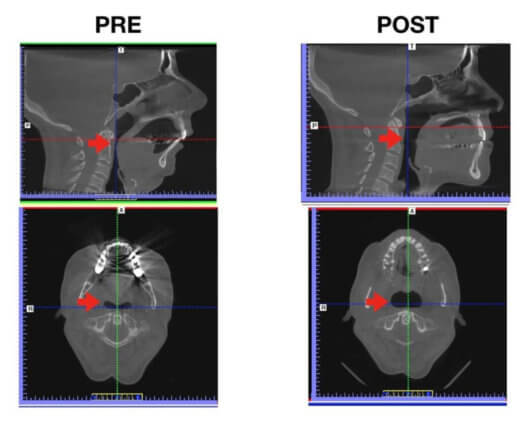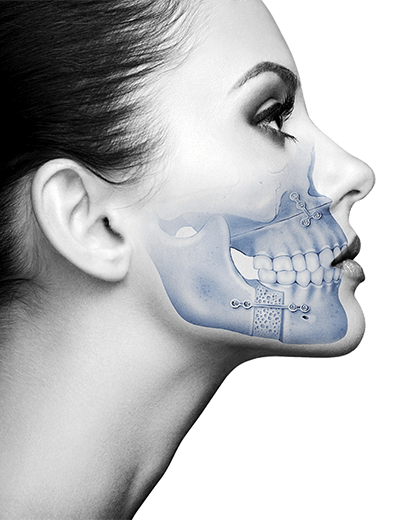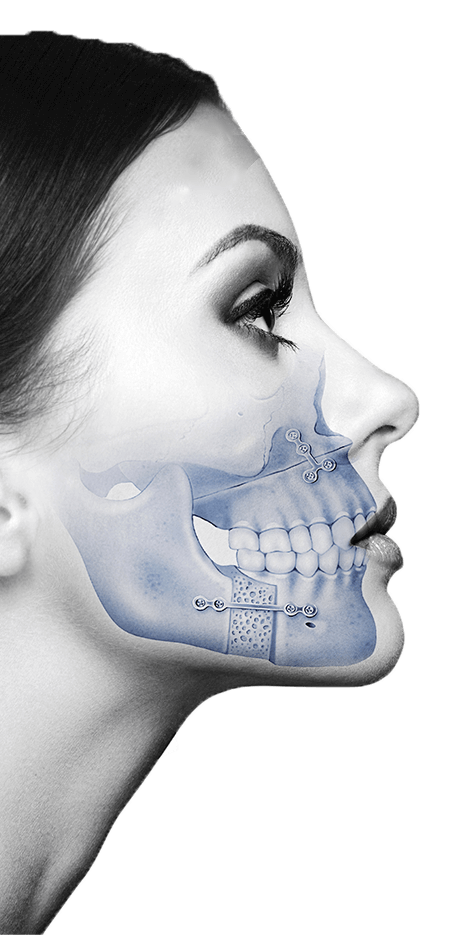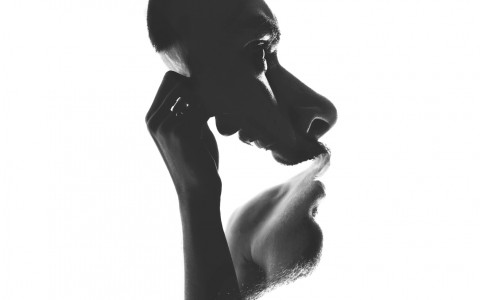In patients with obstructive sleep apnea syndrome, or OSAS, there is a decrease in the volume of the upper airway, so that when sleeping, due to the relaxation of the tissues that occurs during sleep, the passage of air gets obstructed, especially if the patient sleep on their back. When this happens, the brain reacts by triggering a systemic alarm response that awakens the patient to resume breathing. This causes fatigue and tiredness during the day and, in severe cases, due to the reduction in the amount of oxygen carried by the blood, high blood pressure, cardiovascular disease, and metabolic and hormonal alterations can occur.
Who can get OSA?
In adults, this condition is related to the consumption of relaxants such as alcohol, some neuromuscular diseases, and smoking. Overweight patients also tend to have a narrower upper airway and therefore at higher risk of obstruction during sleep.
Mandibular retrognathia (class II bite) and Sleep Apnea

At Instituto Maxillofacial we are experts in the management of OSA problems and world pioneers in research on this field, consult our specialists if you have the facial profile described above, or if you suspect that you may suffer from sleep apnea.
Related content:
Does having sleep apnea make me less intelligent?
The role of the maxillofacial surgeon in the treatment of Sleep Apnea
Video: Risk Factors for Sleep Apnea








